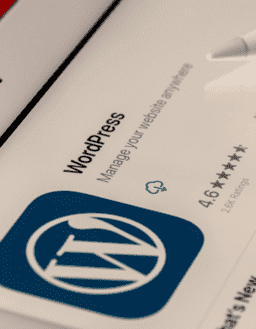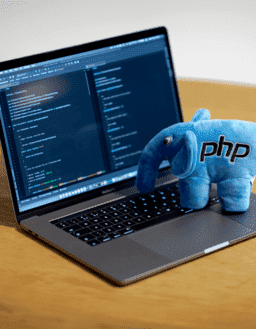
Although opening your e-commerce website is a big step, the truth is that success is not guaranteed by having an online store alone. Many businesses find that their rapidly built websites lack the features that customers have become accustomed to. Sales can be swiftly stopped by poor navigation, a convoluted checkout process, or a lack of payment options.
The good news? You can avoid those pitfalls. The correct foundation is essential whether you want to build e-commerce website from scratch or enhance your current Shopify store. The five components that every e-commerce platform has to have in order to compete with the best e-commerce websites and produce notable growth will be discussed in this article.
Feature 1: Seamless User Experience
The foundation of any e-commerce store is a smooth customer experience. If they can’t receive what they want quickly, customers will often go to a rival retailer. As a result, search, navigation, and mobile responsiveness must be given a lot of attention.
A Shopify e-commerce website with clear menus, clear product categories, and a smooth checkout process will always fare better than one that is messy or hard to understand. It’s just as important to focus on mobile design. Over half of all online purchases are made on phones, so a Shopify website that isn’t set up for mobile screens could lose clients before they even add items to their basket.
So, what makes a good e-commerce website? It’s a combination of ease of use, trust, and performance. A good site loads quickly, guides customers smoothly from product search to checkout, offers secure payment options, and adapts well to different devices. In short, it removes barriers and makes buying effortless
Quick tip: test your site as if you were a customer. Can you find a product, add it to the cart, and check out within two minutes? If not, simplify. Remember: the smoother the experience, the higher the conversion.
Feature 2: Secure and Flexible Payment Options
In e-commerce, trust is everything. Customers want to know that their information is safe and that they may pay the way they want. That’s where secure and flexible payment alternatives come in.
PCI compliance, fraud prevention, and encrypted transactions are all components of a solid e-commerce web development approach. However, provide options rather than just security. Customers feel more confident about making a purchase when a Shopify online store accepts credit cards, PayPal, digital wallets, and even “buy now, pay later” options.
To put it another way, the less likely it is that someone will leave their cart behind, the easier it is for them to pay. Companies that make flexible gateways for e-commerce sites are ahead of others that employ old, limited technologies.
Find the best e-commerce platform that has a good blend of features that are easy for customers to use and strong security. For example, a Shopify e-commerce solution comes with built-in trusted integrations, so you can focus on sales instead of fixing payment gaps.
Feature 3: Scalable Product and Inventory Management
Even if your company starts small, it can develop quickly. Product and inventory management is, therefore, an essential aspect. You may avoid outgrowing your store after a few successful months by using a platform that grows with you.
You may create a Shopify store with integrated inventory tools to check stock levels, get alerts when things are running short, and even sync across several sales channels. This prevents overselling, keeps your firm running smoothly, and reduces customer complaints.
By automating these processes, some of the best e-commerce websites allow entrepreneurs to concentrate on expansion rather than accounting. Scalability ought to be on your list of considerations when investing in e-commerce website development.
Recall that an expanding product line should never translate into more headaches. Strong inventory features in Shopify stores enable brands to grow with assurance and control.
Feature 4: Integrated Marketing and SEO Tools
A top-notch e-commerce platform aids in product marketing in addition to hosting goods. Without depending entirely on advertisements, it is simpler to draw clients with integrated SEO, email marketing, and social media tools.
Consider the example of a Shopify website. You may rank higher in Google by optimizing product pages for search engines using built-in SEO plugins. Your investment in e-commerce web development will be more effective if you combine it with email automation, which will convert new customers into loyal ones.
Make sure to build online store that can integrate with marketing, CRM, and analytics software. This is how the best e-commerce platform provides you with a growth engine in addition to a store.
Feature 5: Analytics and Customer Insights
What distinguishes the best e-commerce websites from decent stores? Data. Raw data is transformed into workable solutions through analytics and customer insights. In their absence, you are speculating.
Real-time sales, customer demographics, and product performance are all available on Shopify’s e-commerce dashboards. By helping to identify trends, best sellers, and ways to improve marketing, these insights are extremely helpful to expanding firms.
Integrating analytics into your e-commerce website development process is the best course of action. Don’t put tracking in place after launch. Connect technologies like Google Analytics or built-in reporting features immediately, regardless of whether you’re building a Shopify store or another platform.
Expert advice: Look at reports more frequently than simply once a quarter. Slight changes, such as rearranging your ad budget or product positioning, might result in significant changes in revenue. An effective Shopify online store uses data to learn and adjust rather than just operating.
Conclusion
Consider the process for developing a Shopify store as more than just a project. It’s an investment in expansion. Businesses that are successful view their Shopify online store as a living asset that is built to grow, change, and outperform the competition.
Frequently Asked Questions
1) How do I choose the best e-commerce platform for my business?
→ Look for a platform that balances usability, scalability, and security. Shopify is often a top choice because it offers built-in tools for payment, SEO, and analytics, making it easier to manage everything from one place.
2) Can Shopify integrate with external marketing and CRM tools?
→ Absolutely. Shopify supports integrations with popular CRM systems, email marketing platforms, and analytics tools like Google Analytics, HubSpot, and Klaviyo.






































